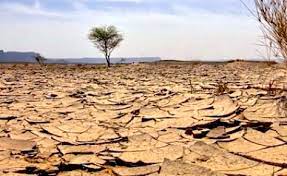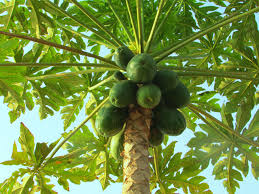
Nigeria, as the most populous country in Africa, faces significant challenges in ensuring food security for its population. The country's agricultural sector is confronted with various issues, including drought, desertification, and the threat of famine.
These challenges have severe implications for Nigeria's food production, livelihoods, and overall socioeconomic stability.
In this article, we will explore the impact of drought and desertification on Nigeria's food security, examine the underlying causes, and discuss potential strategies to mitigate these challenges.
Understanding Drought and Desertification
Drought is a recurring natural phenomenon characterized by a prolonged period of abnormally low precipitation, resulting in water scarcity and soil moisture deficits. Nigeria's susceptibility to drought is influenced by its geographical location within the Sahel region, where rainfall patterns are highly variable.
Desertification, on the other hand, refers to the degradation of land in arid, semi-arid, and dry sub-humid areas due to various factors, including climate change, deforestation, overgrazing, and improper land management practices.
Impacts on Agriculture and Food Security
Drought and desertification have far-reaching impacts on Nigeria's agriculture and food security. These challenges disrupt crop production, reduce agricultural yields, deplete water resources, and degrade soil quality.
Reduced crop productivity not only affects food availability but also contributes to rising food prices, exacerbating food insecurity for vulnerable populations. Livestock farmers also face difficulties in sustaining their herds due to limited water and forage resources, leading to reduced milk and meat production.
Climate Change and Human Activities
Climate change, resulting from greenhouse gas emissions and human activities, plays a significant role in exacerbating drought and desertification in Nigeria. Rising temperatures, unpredictable rainfall patterns, and increased frequency of extreme weather events intensify the vulnerability of agricultural systems.
Deforestation, overgrazing, improper irrigation practices, and land degradation further contribute to desertification.
Unsustainable exploitation of natural resources, such as illegal logging and mining, worsens the situation, leading to irreversible damage to ecosystems.
Water Management and Conservation
To mitigate the impacts of drought and desertification, effective water management and conservation strategies are essential. Nigeria needs to invest in infrastructure development for water storage, irrigation systems, and efficient water use practices.
Implementing rainwater harvesting techniques, such as constructing small reservoirs and water catchment systems, can provide farmers with an alternative water source during dry spells.
Encouraging the adoption of climate-resilient crop varieties and promoting agroforestry practices can enhance soil moisture retention and improve water-use efficiency.
Soil Conservation and Land Restoration
Addressing desertification requires concerted efforts in soil conservation and land restoration. Implementing sustainable land management practices, such as terracing, contour plowing, and agroforestry, can help combat soil erosion and improve soil fertility.
Reforestation programs and afforestation initiatives should be promoted to restore degraded land and protect against further desertification.
Strengthening land-use planning and enforcing regulations to prevent deforestation and unsustainable land practices are crucial steps toward combating desertification.
Diversification of Agriculture and Rural Development
Diversifying agricultural practices and rural development can enhance resilience against drought and desertification.
Promoting climate-smart agriculture techniques, such as conservation agriculture, precision farming, and efficient water use, can improve productivity and reduce vulnerability to climate risks. Supporting small-scale farmers through access to credit, improved market linkages, and knowledge-sharing platforms can strengthen their capacity to adapt to changing environmental conditions.
Developing alternative livelihood options, such as agro-processing industries and non-farm enterprises, can reduce dependence on rain-fed agriculture and enhance rural economies.
Policy Interventions and International Cooperation
Addressing the challenges of drought, desertification, and famine requires robust policy interventions and international cooperation. The Nigerian government should prioritize the development and implementation of comprehensive climate change adaptation and mitigation strategies.
These strategies should focus on building resilient agricultural systems, enhancing early warning systems, strengthening disaster risk reduction measures, and supporting vulnerable communities.
International partnerships, financial assistance, and technology transfer can play a vital role in supporting Nigeria's efforts to combat drought and desertification.
Drought, desertification, and the threat of famine pose significant challenges to Nigeria's food security. Addressing these challenges requires a multi-dimensional approach, involving water management, soil conservation, agricultural diversification, and policy interventions.
By implementing sustainable practices and investing in resilient agricultural systems, Nigeria can enhance its capacity to withstand the impacts of drought and desertification, ensure food security for its population, and achieve sustainable development in the face of a changing climate.
























